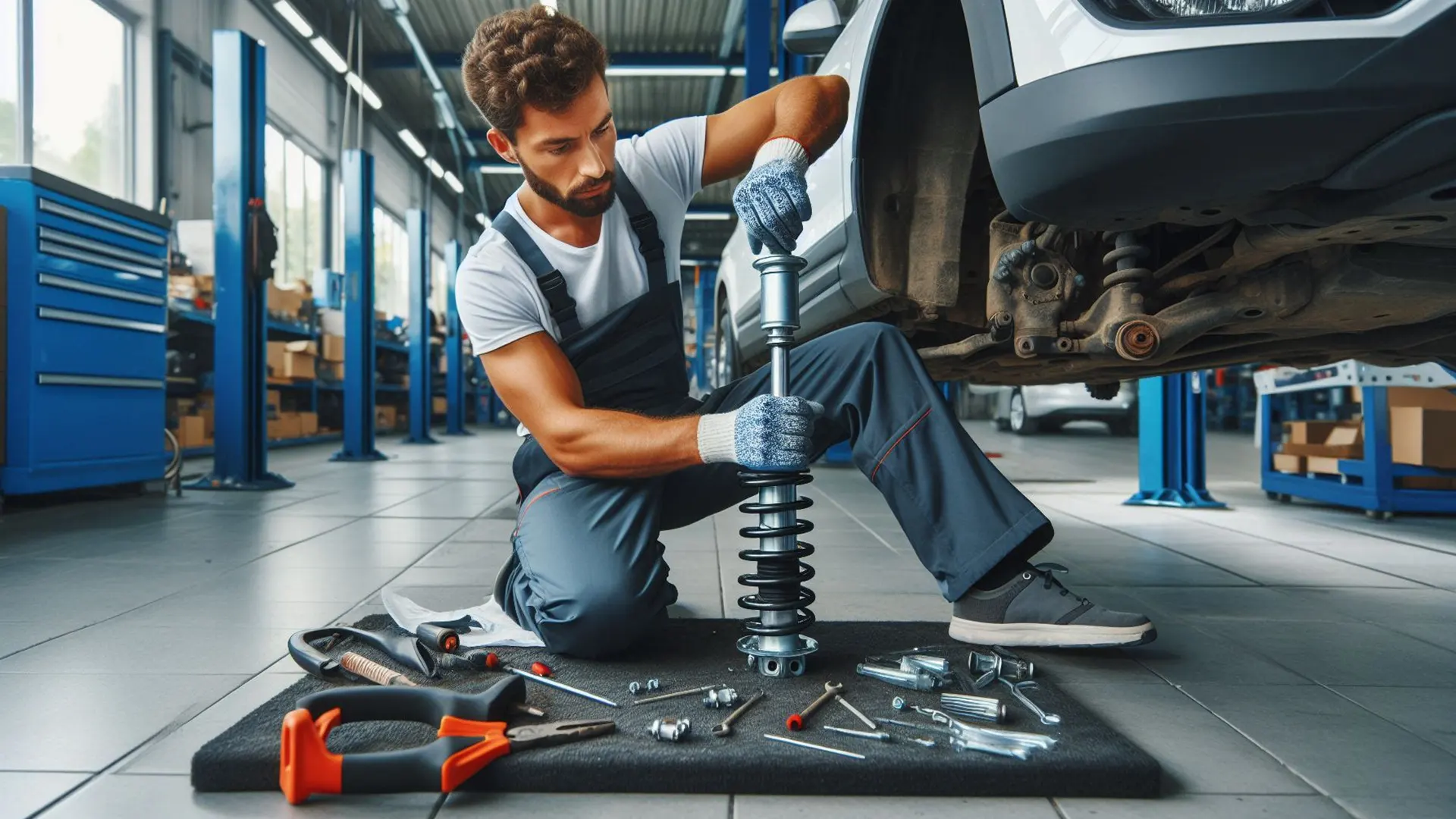Shock absorbers are one of the most essential components for the overall performance of your car, so it’s vital to ensure they’re always in good working order. However, knowing Hyundai shock absorber failure isn’t always easy!
Hyundai shock absorber failure is one of the most significant and fundamental issues that can arise. Shock absorbers are a critical element in the suspension and stability system of cars. Any damage or failure to these can lead to severe issues in the performance and safety of the vehicle.
Contact us Now!
That’s precisely why you need to read this article to fully understand the reasons behind this occurrence and how to prevent it. In the following sections, we will first explain why it’s essential to replace the shock absorbers on your vehicle, then when to replace your Hyundai shock absorbers.
The truth is that we estimate the lifespan of a vehicle’s shock absorbers to be around 80,000 kilometers, so try to find out the previous replacement date if you have a used Hyundai or check the mileage if it’s brand new.
We don’t always think about it, but a technical inspection is a reliable method for knowing when to repair Hyundai shock absorber failure. In fact, this comprehensive inspection of your vehicle (especially since its enhancement in 2019) allows you to assess the condition of a car thoroughly.
It confirms the presence of leaks, rod deformation, and corrosion and addresses these issues on your shock absorbers and If you have some knowledge of mechanics, you can preemptively check for oil on the shock absorbers, which can alert you to potential leaks.
If you notice your Hyundai vehicle making squeaking noises or behaving oddly when taking turns or going over speed bumps, don’t hesitate to check out our article focused on this issue. These symptoms could indicate severe wear on your shock absorbers and highlight the importance of replacing them.

Place your Hyundai car on a flat surface and, while struggling with the hood, check if one corner of the car is lower than the others. Don’t hesitate to use a measuring tape for accuracy; this can alert you to a failing shock absorber mount.
Check the tread wear on your Hyundai’s tires and If you notice unusual wear on the “sidewalls” of the tires, it could be a sign of worn-out shocks.
What are the signs of Hyundai shock absorber failure?
There are several signs of Hyundai shock absorber failure that are common across most newer models of this car brand:
• Unusual noises
• Instability in driving behavior
• Changes in vehicle body height
• Body roll
• When under heavy load or pressure
• Pulling to one side
One of the first signs of shock absorber failure is abnormal noises when driving. These noises may include clunking, squeaking, or whistling sounds. These sounds are usually heard when going over bumps or applying pressure to the shocks.

A failing or weakened shock absorber can lead to instability in the vehicle’s driving behavior. This includes feeling overly stiff or soft when driving, sudden changes in body height, and a lack of better control when going over various obstacles.
When your car keeps pulling to one side while driving, there’s a good chance that the suspension system and shock absorbers have issues. Signs of Hyundai shock absorber failure might become especially noticeable when extra pressure or load is applied to the car. In this case, you might experience excessive dipping, hear more abnormal noises, or notice other signs of failure.
Another sign of shock absorber failure is sudden or irregular changes in the vehicle’s body height. This can include excessive compression or rebound of the shocks, changes in height, or uneven body level on each side of the car.
Shock absorber failure can also lead to looseness in the car’s body. This includes more cracks or splits in the body, difficulty when encountering obstacles, and unwanted changes in the shape of the body.
Why should you replace your Hyundai shock absorbers?
Understanding why replacing them can be crucial; Because analyzing the condition of your shock absorbers isn’t easy, but knowing how they perform is essential for keeping them in good shape. Your Hyundai shock absorbers are part of the safety features of your car.
They ensure your vehicle handles well on the road, maintain tire contact with the ground, and evenly distribute the car’s weight. Additionally, shock absorbers guarantee your Hyundai’s driving comfort. If the shock absorbers worn out, you’ll get tired faster, making it more dangerous to drive. Finally, having bad shock absorbers accelerates the wear and tear of other parts like silent blocks or tires.



